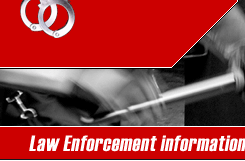Have you ever wondered how police can stop you at a DUI roadblock (aka "sobriety checkpoint")? Doesn't the Constitution require them to have "probable cause before stopping you"? Yes and no, explains Lawrence Taylor who heads up a team of California DUI attorneys that specialize in DUI defense.The Constitution of the United States clearly says that police can't just stop someone and conduct an investigation unless there are "articulable facts" indicating possible criminal activity. So how can they do exactly that with drunk driving roadblocks? Good question. And it was raised in the case of Michigan v. Sitz, in which the Michigan Supreme Court striking down DUI roadblocks as unconstitutional.
In a 6-3 decision, however, the U.S. Supreme Court reversed the Michigan court, holding that they were constitutionally permissible.Chief Justice Rehnquist began his majority opinion by admitting that DUI sobriety checkpoints do, in fact, constitute a "seizure" within the language of the Fourth Amendment.
In other words, yes, it appears to be a blatant violation of the Constitution. However, he continued, it's only a little one, and something has to be done about the "carnage" on the highways caused by drunk drivers. The "minimal intrusion on individual liberties", Rhenquist wrote, must be "weighed" against the need for -- and effectiveness of -- DUI roadblocks.
In other words, the ends justify the means.The dissenting justices pointed out that the Constitution doesn't make exceptions: The sole question is whether the police had probable cause to stop the individual driver. As Justice Brennan wrote, "That stopping every car might make it easier to prevent drunken driving.is an insufficient justification for abandoning the requirement of individualized suspicion.
The most disturbing aspect of the Court's decision today is that it appears to give no weight to the citizen's interest in freedom from suspicionless investigatory seizures".Rehnquist's justification for ignoring the Constitution rested on the assumption that DUI roadblocks were "necessary" and "effective". Are they? As Justice Stevens wrote in another dissenting opinion, the Michigan court had already reviewed the statistics on DUI sobriety checkpoints/roadblocks: "The findings of the trial court, based on an extensive record and affirmed by the Michigan Court of Appeals," he wrote, "indicate that the net effect of sobriety checkpoints on traffic safety is infinitesimal and possibly negative".Note: The case was sent back to the Michigan Supreme Court to change its decision accordingly. But the Michigan Supreme Court sidestepped Rehnquist by holding that DUI checkpoints, though now permissible under the U.
S. Constitution, were not permissible under the Michigan State Constitution, and ruled again in favor of the defendant -- in effect saying to Rehnquist, "If you won't protect our citizens, we will". A small number of states have since followed Michigan's example.
.Please visit the Law Offices of Lawrence Taylor at http://www.duicentral.com/ for more information.
By: Lawrence Taylor


